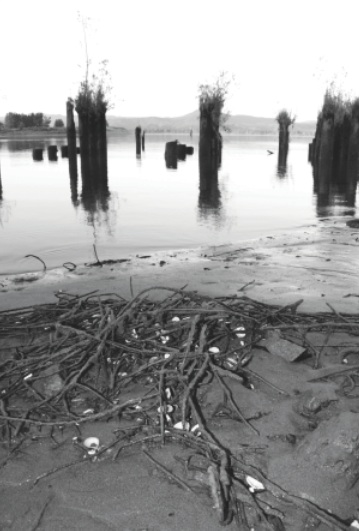 In mid September, federal officials approved a controversial liquid natural gas project located on the Columbia River and in doing so set the stage for a potential legal battle between the state of Oregon and the Federal Energy Regulatory Commission.
In mid September, federal officials approved a controversial liquid natural gas project located on the Columbia River and in doing so set the stage for a potential legal battle between the state of Oregon and the Federal Energy Regulatory Commission.
|
ASTORIA In mid September, federal officials approved a controversial liquid natural gas project located on the Columbia River and in doing so set the stage for a potential legal battle between the state of Oregon and the Federal Energy Regulatory Commission.
Moments after FERC announced its approval of the Bradwood Landing project — which consists of a $580 million terminal 20 miles upriver from Astoria and a 36-mile-long pipeline that would stretch east to Kelso — Gov. Ted Kulongoski slammed the agency.
“Moving forward with this project as is — which is incomplete — disregards states’ rights in this process,” he said in a statement. “If legal action is necessary to compel FERC to do this right, I am prepared to exercise that option.”
It’s unclear when the situation might reach that point. The state has asked FERC for a new approval hearing, the final step before legal steps are taken. The public also has 30 days to appeal the FERC’s decision.
The Bradwood Landing saga began three years ago when Texas-based NorthernStar Natural Gas announced it would take super-cooled liquid natural gas imported via ship from Africa, the Middle East and Indonesia, warm it to a gaseous form in a $580 million terminal, and transport it through pipelines to Oregon, Washington and California.
NorthernStar and FERC officials argue the project is crucial in helping the Pacific Northwest meet its growing natural gas needs. But Kulongoski, environmental groups and Clatsop County residents argue FERC hasn’t adequately considered environmental issues associated with the project. There are other challenges as well: The same week FERC handed down its decision, Clatsop County overwhelmingly voted to ban pipelines from crossing certain types of land. (Northern Star says the ballot measure isn’t legally valid.)
In their approval, FERC commissioners countered each of the challenges offered by Kulongoski and others. But those rebuttals weren’t sufficient for the governor. “The commission has decided to ignore the law and instead, approve a project with incomplete mitigation plans and without regard to Oregon’s important concerns,” he said in his statement.
As options for a peaceful resolution of those concerns disappear, the pressure, like an over-filled tank of natural gas, is building.
ABRAHAM HYATT
Have an opinion? E-mail [email protected]


